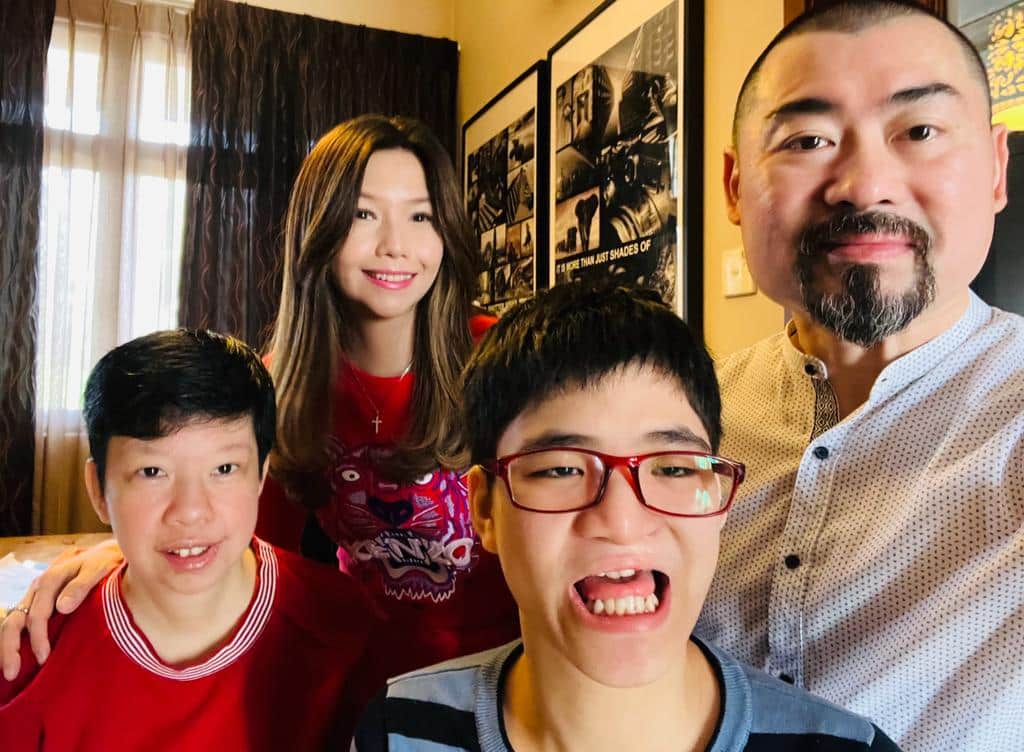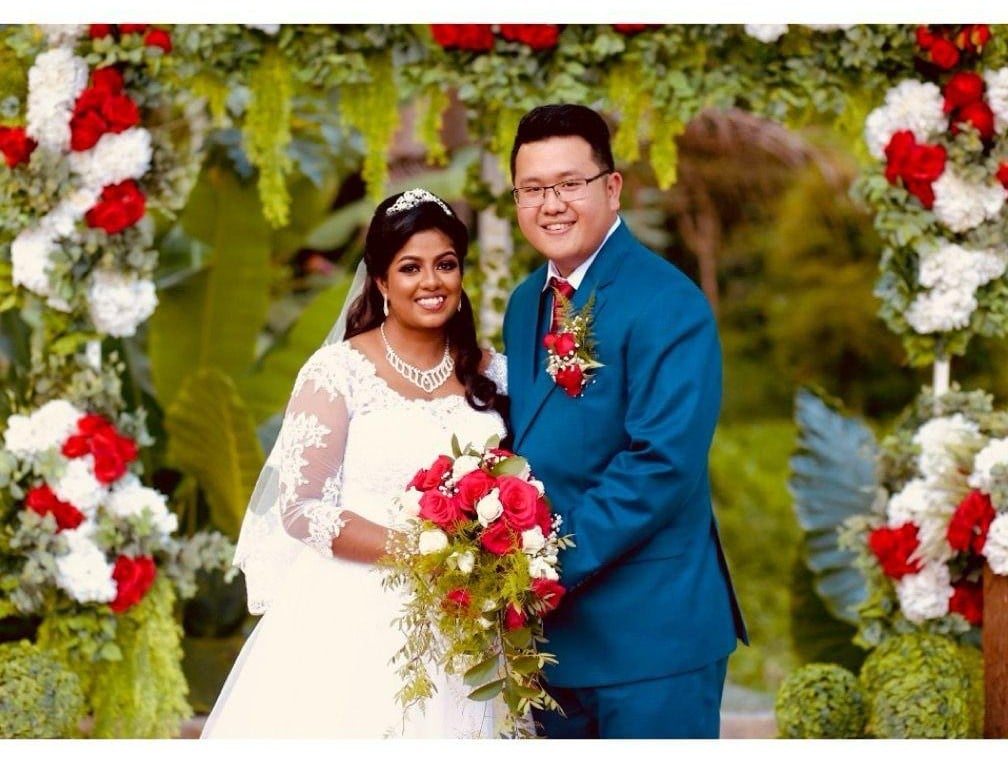“There was no big blueprint, just the fingerprint of God”: HealthServe’s Dr Goh Wei Leong
Salt&Light rejoices with OM Singapore as they celebrate 40 years of God's unchanging faithfulness!
by Juleen Shaw // August 27, 2021, 6:06 pm
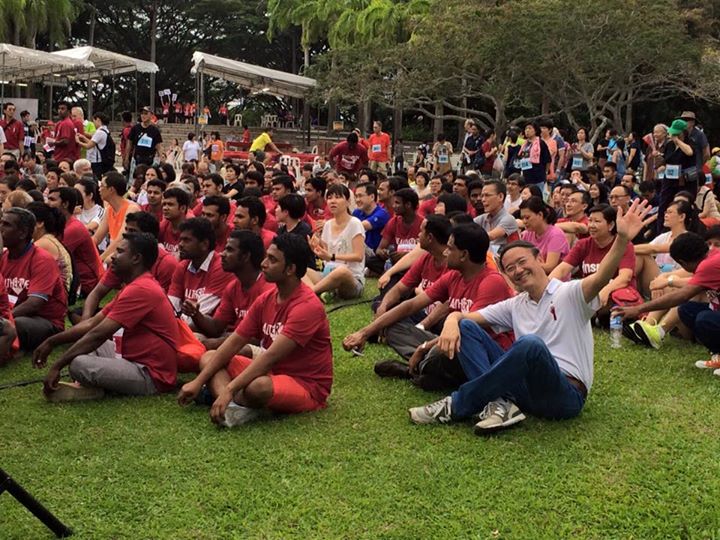
"One thing I learnt in HealthServe was to be open to God’s leading at every turning point," says Dr Goh Wei Leong, seen here at a HealthServe migrant worker event before Covid. "So when God opened doors, we went in by faith." All photos courtesy of OM Singapore.
“God blew my mind.”
If ever there were a motif in Dr Goh Wei Leong’s life, that would be it: God blew his mind. Constantly.
It happened in Mongolia in 1995, when his “world of mission” was as yet neatly contained within the four walls of his Katong church.
Then, in Ulaanbaatar, a German couple was ushered into his medical camp, toting their three-month-old baby. The cheerful young family lived in a ger without running water or electricity, and had travelled over 100km to see him for a medical checkup. Despite their hard circumstances, they were curiously “content to live their lives for Jesus”.
“That really blew my mind.”
So transformative was the encounter, in fact, that it altered the trajectory of Dr Goh’s life.
It happened again in South Asia, when “the very safe world (he) grew up in” collided with the reality of multitudes subsisting in the face of constant struggle and abject poverty, bald-faced injustice and furtive crime.
The shock challenged his notion of faith.
If ever there were a motif in Dr Goh Wei Leong’s life, that would be it: God blew his mind. Constantly.
It happened again three years ago at a conference, when an Indonesian couple he met told him how they had volunteered for a hardship posting in a remote part of the country where nobody else wanted to go. There, the wife set up a dental clinic providing holistic care to the villagers while the husband provided education. They wanted to “walk alongside” the villagers, to be a voice for them, to advocate for them against the exploitation of big plantation owners. Their willingness to go where nobody else would go both moved and inspired him.
It even happened in the quiet of his living room overlooking lush gardens, as he opened the pages of a book by Father Richard Rohr and read the words: Falling Upward.
The notion that those who have failed or fallen down are the ones who understand growing up, intrigued him and challenged him to come into the fullness of his spiritual growth in the second half of his life.
Over and over, God blew his mind.
And every time God did so, He also rattled the cages of Dr Goh’s complacency and freed him to find new ways to collaborate and innovate for the Kingdom.
Dr Goh sits down with Salt&Light to tell us how that has shaped him as a medical professional, leader, missionary and Jesus follower.
What made Mongolia in 1995 a turning point for you?
It was Rev Rodney Hui (founder of OM Singapore) who, after church one day, invited me to Mongolia.
No one really knew about Mongolia then. I went as a doctor to do the annual medical assessments for the missionaries and NGO workers there. I remember staying in a Russian built home together with an OM missionary; even in spring it was -7°C.
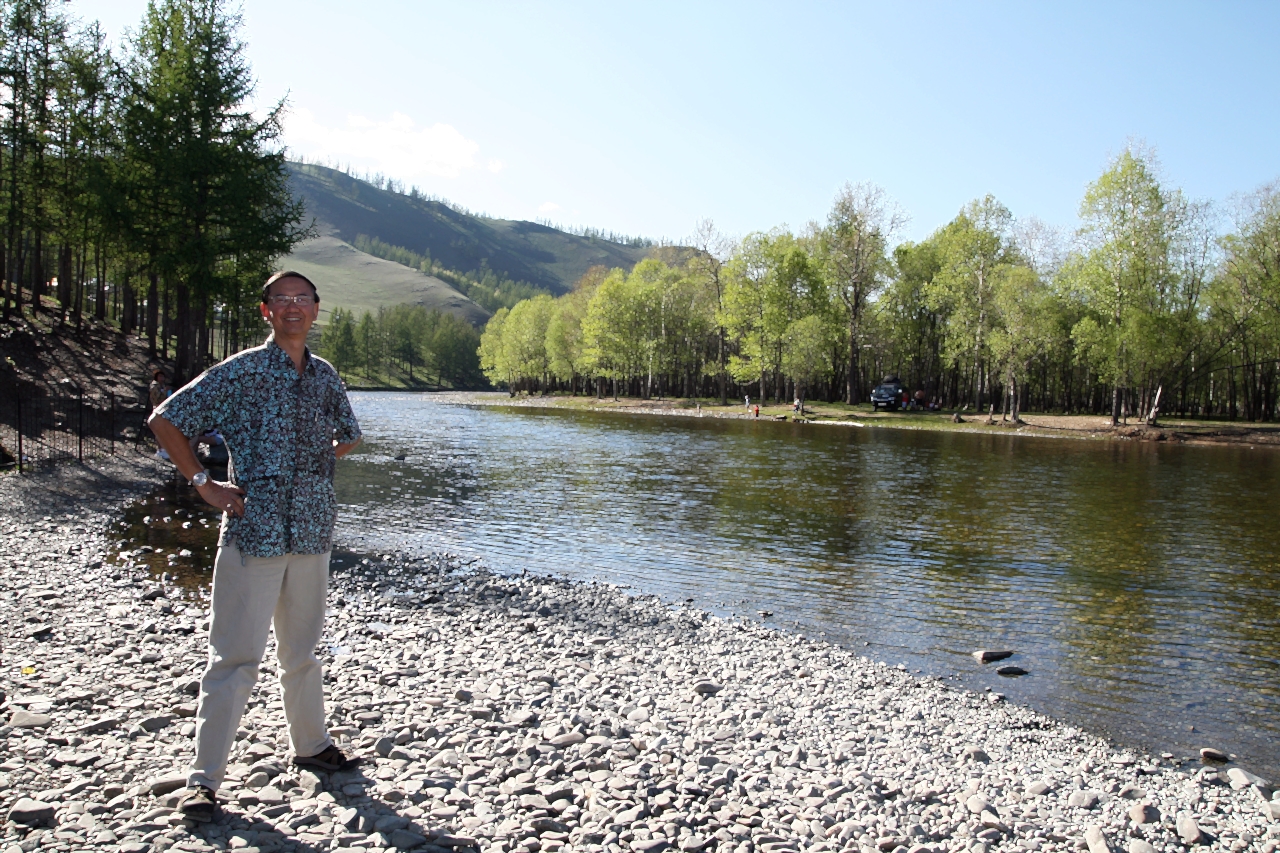
The spring/summer Dr Goh spent in Mongolia in 1995 would alter the trajectory of his life.
For a week I had the opportunity to talk to different missionaries from different agencies and different countries – Denmark, Germany, Philippines. The evenings would be like international night, with stories and cultures shared over BBQs. To be a part of their stories was special for me. God opened my eyes, and I rediscovered Jesus in Mongolia.
“In Mongolia, I saw people who were open to God’s world, and God’s world is much larger than just our home church.”
Before that, I’d lived the life of a “regular” Christian – do the right things, attend the right Bible studies, play worship songs.
But, in Mongolia, I saw people who were open to God’s world, and God’s world is much larger than just our home church. It ignited something adventurous in me and got me excited.
What was formative for me was seeing partnerships and collaborations at work.
I was a guest of Joint Community Services (Joint Christian Services then), one of the most successful partnerships in the missions world. Since then, I have always believed in collaborations.
What did you feel led to do after that turning point?
Rodney and I travelled to South Asia. Right away I was hit head-on with a world of injustice, poverty. The very safe world I grew up in collided with the reality of the world that I saw in other parts of Asia.
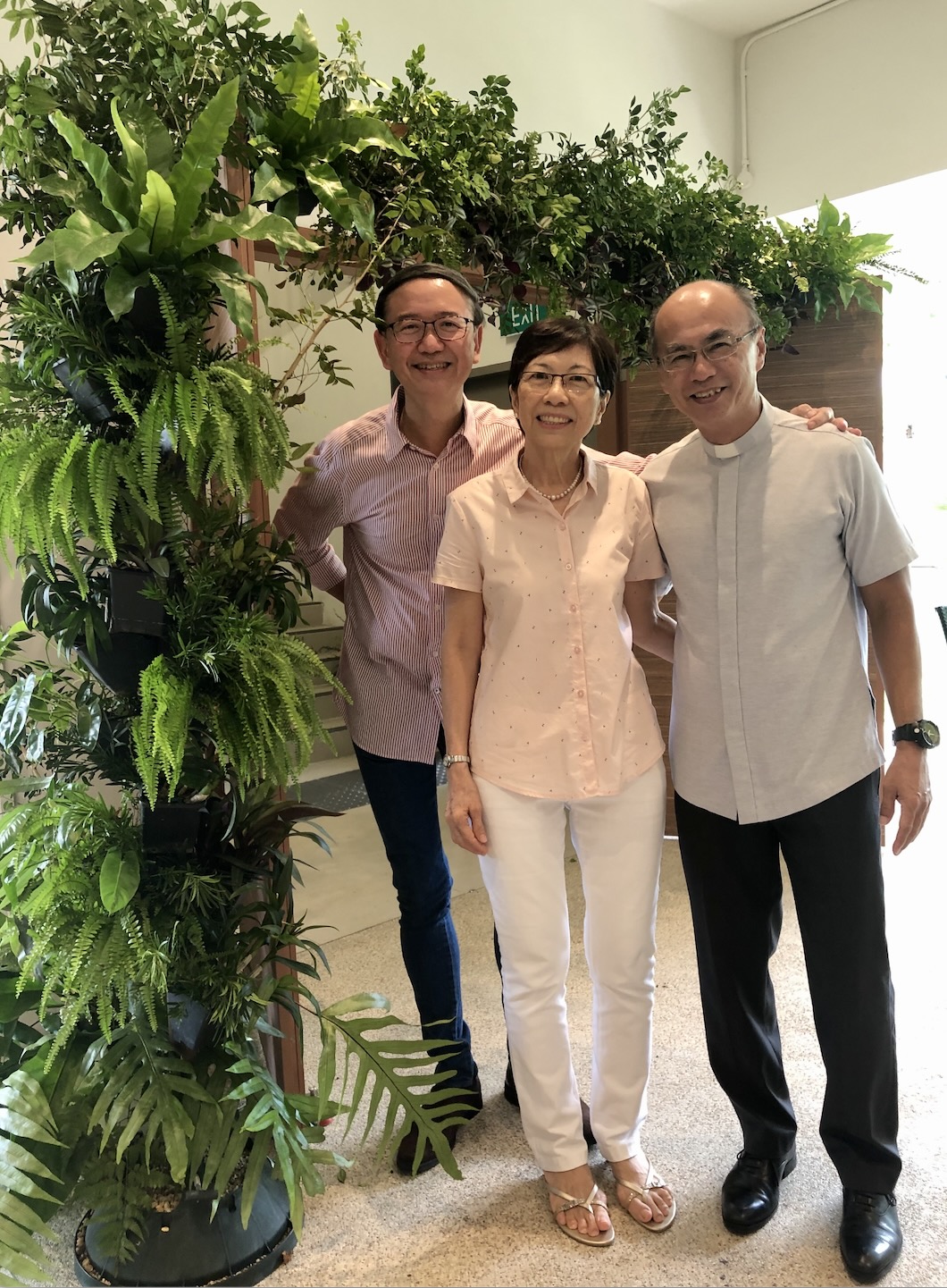
With Rev Rodney Hui, who took Dr Goh on his first mission trip to Mongolia, and wife Irene Hui.
I began to question my own faith and was challenged to look at the possibilities of my own life. It wasn’t an overnight thing. It was a slow revelation that God gave me. And it was largely through the people whose stories I heard. I did not know that the Christian life could be expressed in so many interesting ways, but often through struggle.
It made me wonder why some people were born in South Asia, Mongolia, and then we were born in comfortable Singapore? How do we reconcile that with our calling as disciples? To be born in Singapore is a privilege. But I think it’s also a unique joy to be born somewhere else.
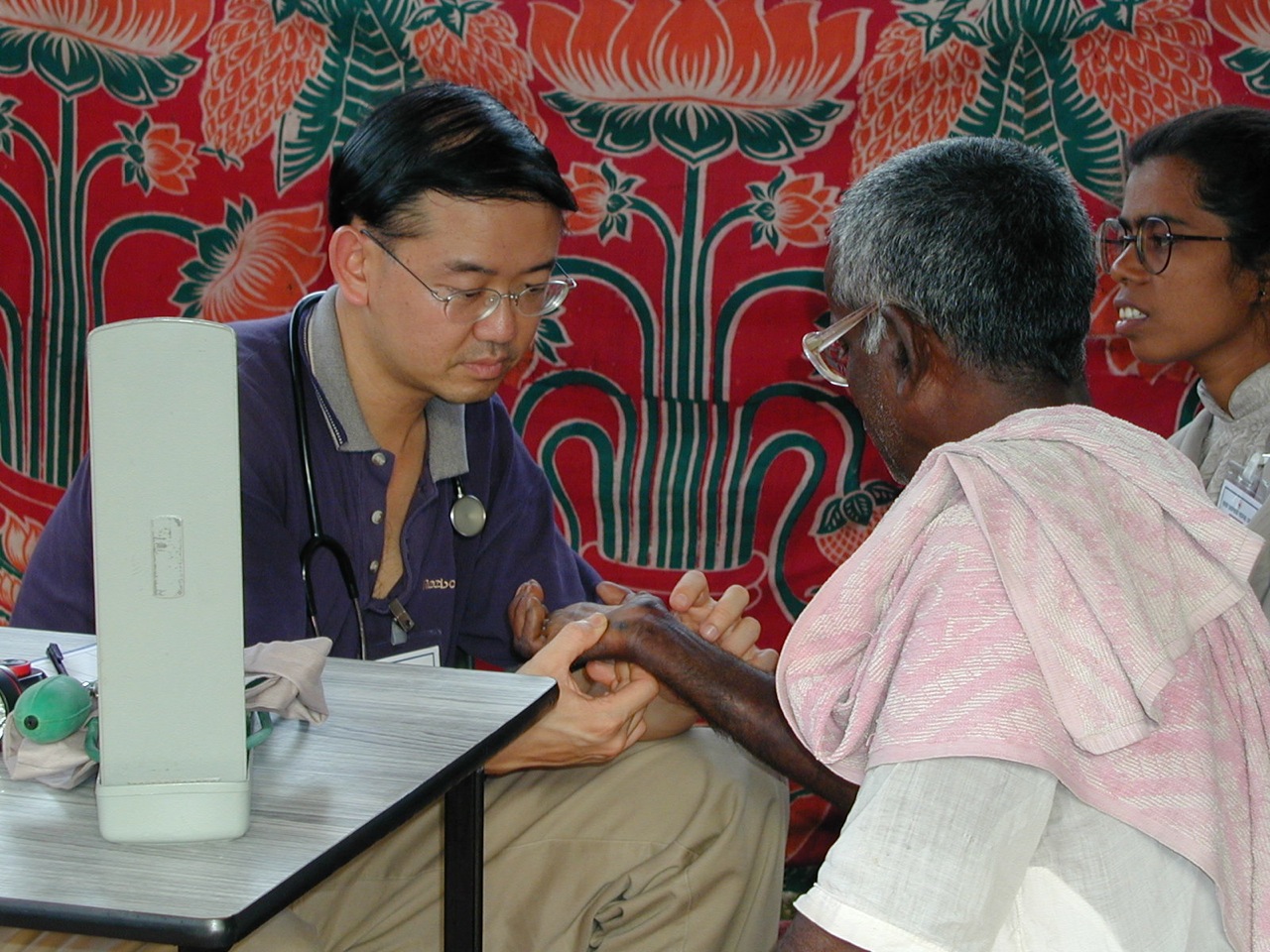
Ministering in South Asia, Dr Goh was “right away hit head-on with a world of injustice, poverty” that challenged his notion of faith at the time.
Looking at my non-Singaporean friends and brothers and sisters, I realised we each have a special calling to contribute to each other.
“Too often our Christian life in Singapore is quite safe. We are not imaginative enough.”
I had so much to learn from the people around me, especially those who served in remote places. They changed my perception of faith.
The Indonesian couple I told you about? The husband, who was a teacher, went on to take his law degree because he saw the injustices in the community and wanted to be a voice for them. This young couple in their 30s took their faith, explored it, expressed it using biblical principles, and just went for it.
Too often our Christian life in Singapore is quite safe. We are not imaginative enough. Perhaps our Singaporean culture of comfort and protection is a barrier.
But what is biblical culture? What would Jesus do?
Would you say one of the things we can learn from brothers and sisters in difficult countries is how to face a challenge?
Absolutely. We have much to learn from their creativity.
I have seen them quietly and simply run programmes that are deeply penetrating and significant. The transformational effect on the community is tremendous.
I’d encourage Singaporeans to think laterally – it can become a real adventure!
Can you relate an instance where you encouraged your team to think out of the box?
Some time ago, the Logos Hope visited Singapore – it was their 34th and last visit here. We had 23 people, largely outside of OM, to help run this OM project.
“If missions could be a platform for generous sharing, we would be more engaging, more life giving, and … more creative.”
They were young people from different churches, different agencies. I dubbed them the G23! We brainstormed and asked ourselves: What would a visit like this do for Singapore? How can we leverage on that?
When I was told the ship was coming right smack during Chinese New Year, I was dismayed: Everything is closed; no one will come! But when I spoke to one of our young leaders, his reaction was: “Wow, that’s great! During Chinese New Year everything is closed and we’re open, so everyone will come!”
True enough, we had a record number of visitors. We also opened up the ship to the migrant community who had nowhere to go on a public holiday.
We invited Martin Tan from Halogen, Joseph Chean from YWAM and Crystal Goh who ran Diamonds on the Street to share their stories.
If missions could be a platform for generous sharing, we would be more engaging, more life giving, and the Gospel will be shared in many more creative ways.
How did you see God’s hand in HealthServe?
I had the rough idea that I wanted to serve the local migrant workers who had poor access to healthcare. It was all from a medical lens; I wasn’t really thinking holistically.
There was no big blueprint. But, I tell you something, there was the fingerprint of God.
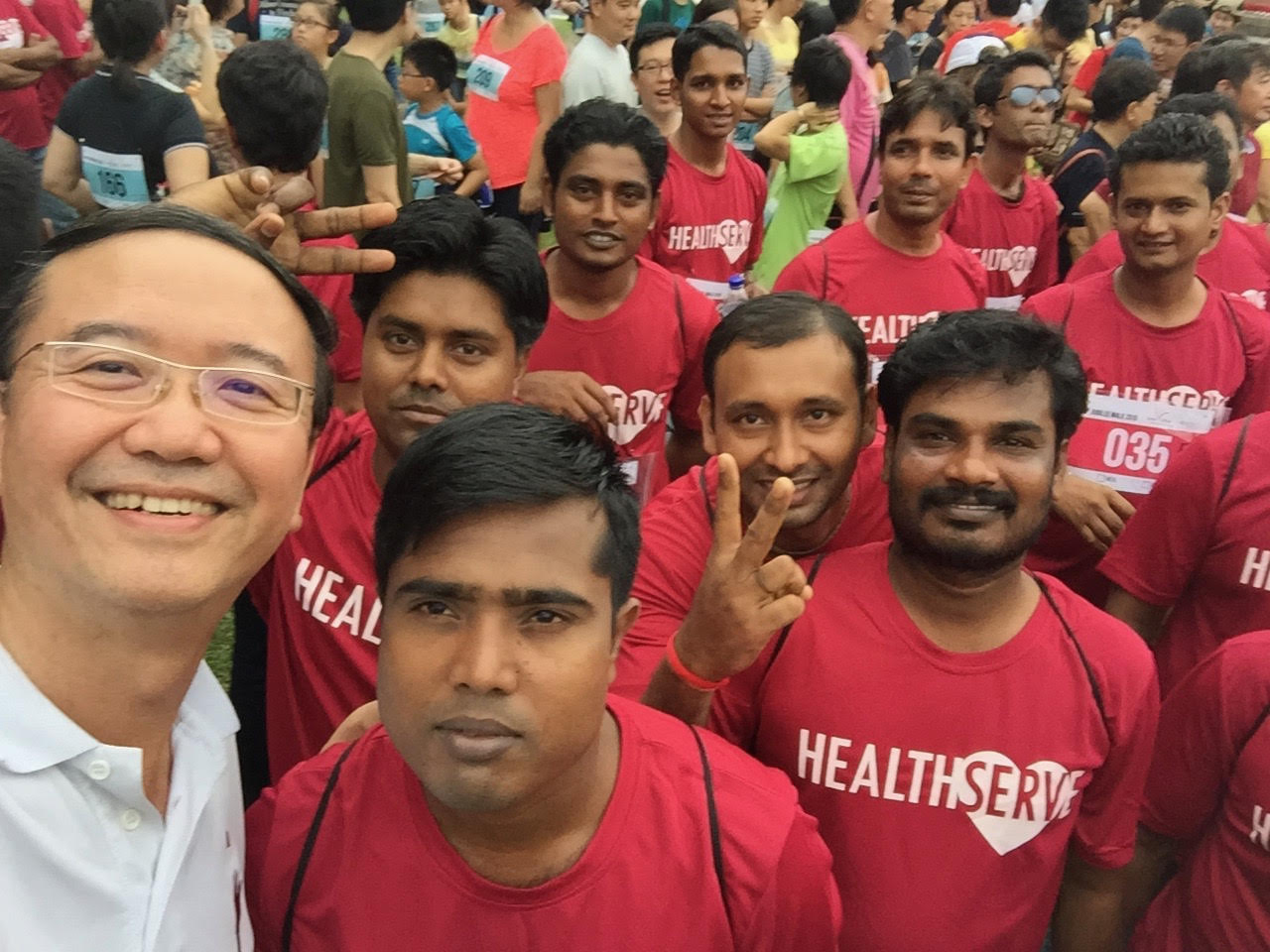
HealthServe began because Dr Goh simply wanted to serve the local migrant workers who had poor access to healthcare.
Because when we started as a medical clinic, we realised we had to think about the social, emotional and financial aspects, legal counselling, advocacy. We also needed to be research based in order to make credible cases to the authorities.
So HealthServe grew into what it is today.
One thing I learnt was to be open to God’s leading at every turning point. So when God opened doors, we went in by faith.
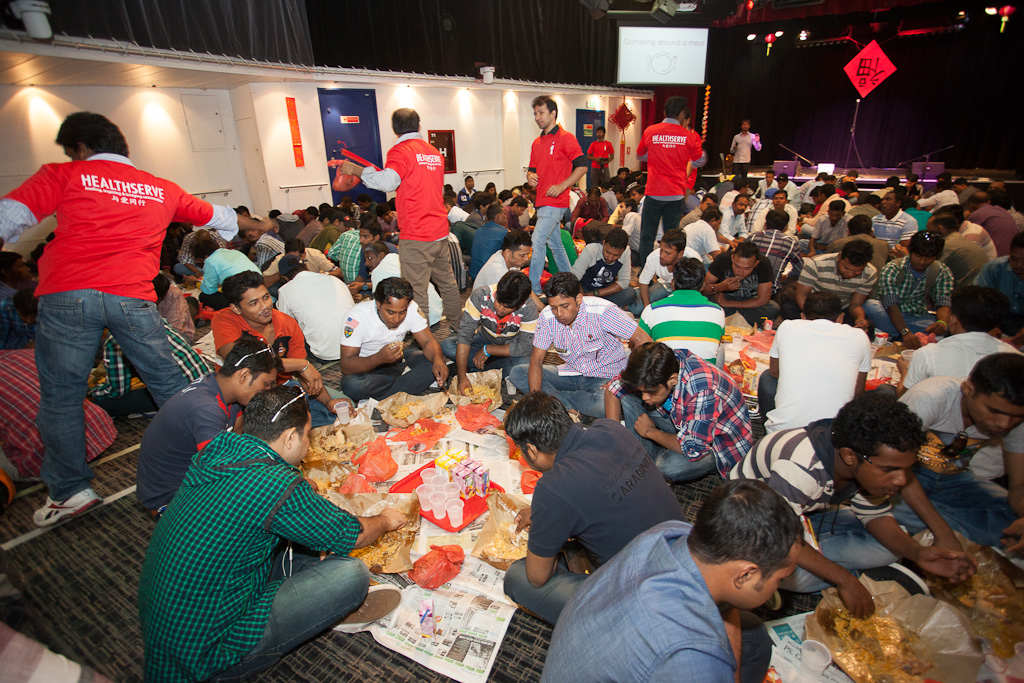
A group of migrant workers from South Asia eating lunch at a gathering for them in 2014.
We did spend a lot of time figuring out our DNA in the first years: Who we are and what we are about. The first year, our original core team of 10 went up to Malaysia to join the Micah Global conference in KL. That was instrumental in forming our core DNA, which has enabled us to respond creatively in changing contexts.
Did your time at the Oxford Centre for Missions Studies reshape your perspectives?
About a year and a half ago, I had the privilege of joining the first cohort of an integrated mission leadership course run by the Oxford Centre for Mission Studies (OCMS). I was part of the OM team. There were some 22 of us, from all the different continents.
This course focused on four areas: Missions, leadership, organisation development and the core of spirituality.
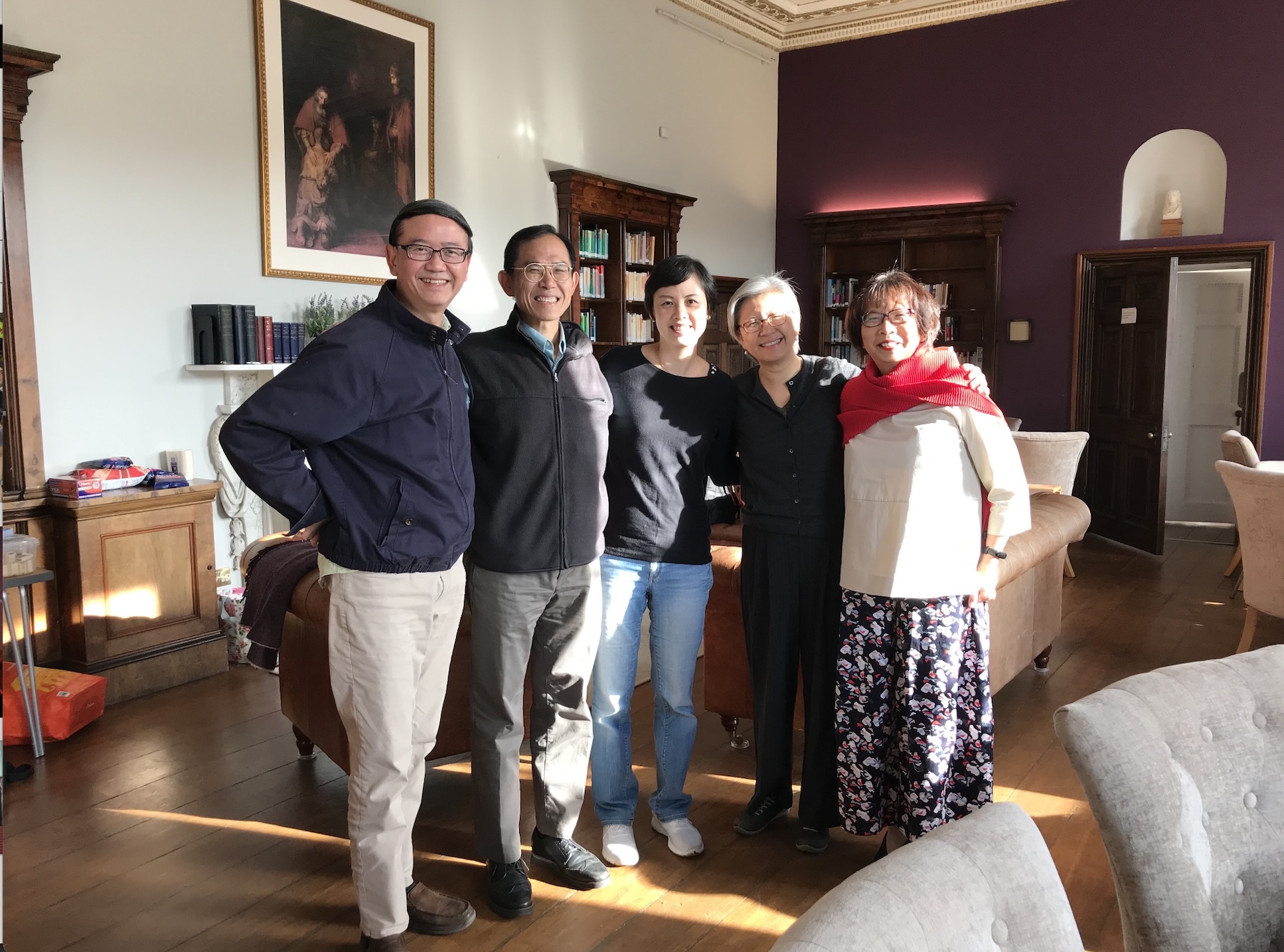
With friends at the integrated mission leadership course organised by the Oxford Centre for Missions Studies in the UK.
We had an amazing faculty and, because of the stories from around the world, we were forced to have a perspective that we sometimes don’t have.
“Sometimes in the mission world where we are really busy doing, the being part is sometimes neglected.”
All of a sudden, my journey in missions became broader, more interesting, because we were looking at how each agency was responding to what was going on around the world. We shared our struggles and were able to speak into each others’ lives.
There was always a focus on our own communion with God; the spiritual core of every leader is important.
It is from this core that comes the rest.
Sometimes in the mission world where we are really busy doing, the being part is sometimes neglected.
How do you maintain this fine tension between being future-ready, yet leaving room for God to work?
I would say that we should plan all we can, and then be prepared to let all of it go.
It’s like driving – you learn all the rules, but when you actually drive, you have to react and respond to the current situation.
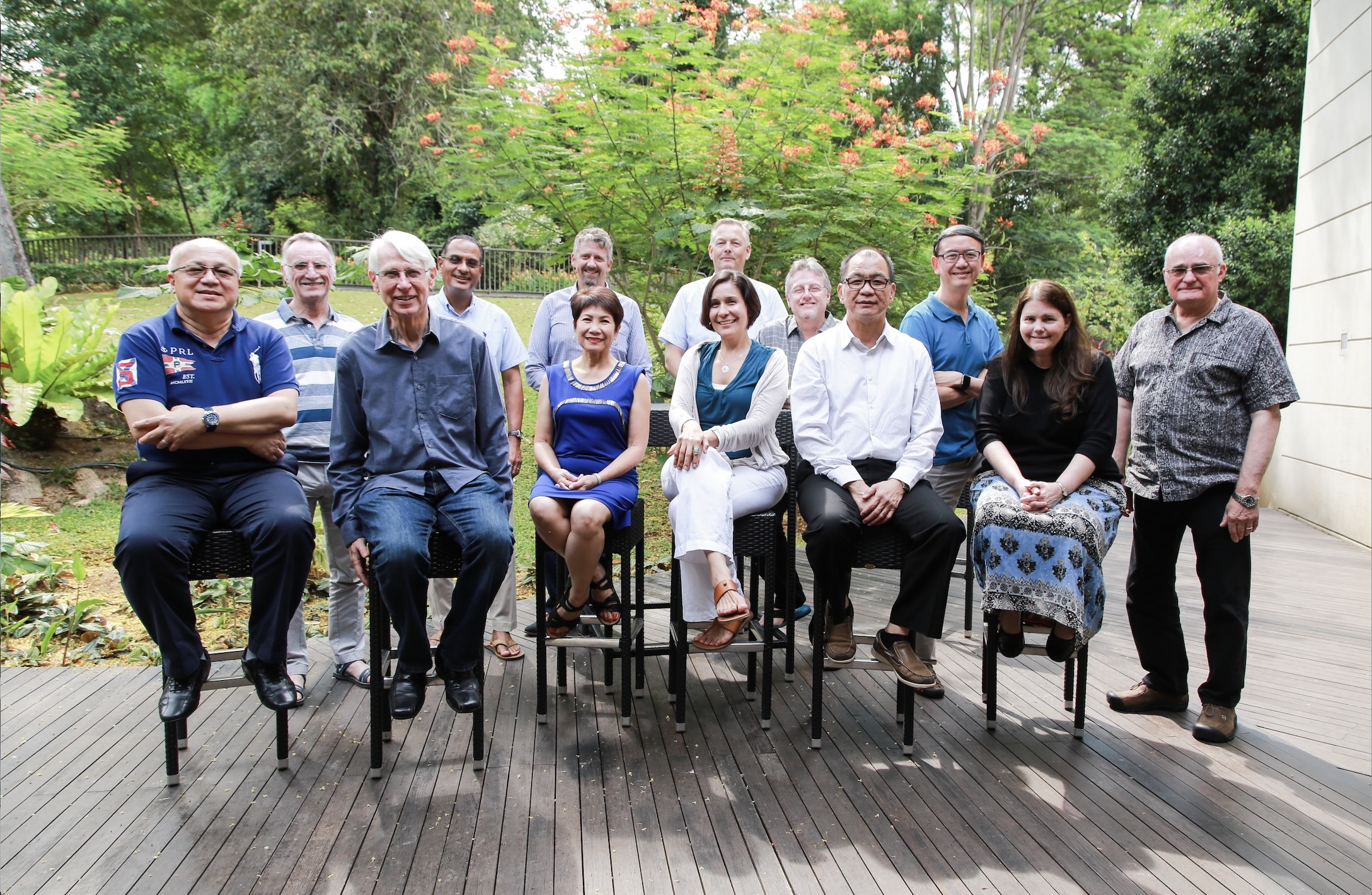
The OM Global Board in 2018.
For instance, the OCMS course helped to reframe my thinking and taught me about organisation and development.
“We should plan all we can, and then be prepared to let all of it go.”
And when I am in the mission field, I need to be able to use some of the skills, but not be dogmatic about it.
We need to have both a strong structure and also sensitivity to the Spirit.
Very often, we go into mission fields with a programme in mind to help the locals. But the answer may lie in the locals themselves who come up with the solutions, and even the resources.
I think the joy really is to be open to hearing God and to be learning from others.
What should we keep in mind as we move from season to season in our missions journey?
I think “seasons” is a wonderful word to describe the journey that each of us has.
Very often, we try to extend a certain season beyond its life. But I think there is wisdom and beauty in every season!
“What does it mean to have our identity parallel with being a child of God, a member of the vibrant community of Jesus followers?”
In my own life, my spring was in Mongolia. That led to a summer of activity – lots of discovery, ploughing and planting, even awards and accolades. But God has now brought me to the season of autumn.
Autumn is a burst of colour, a reflective season. But it is also when leaves fall and become compost for the next generation of growth. So how does one “fall upwards”, in the words of Richard Rohr?
In the world of missions, pre-retirees are a tremendous resource. They’ve got talent and also expertise to bring to the table. The mission world would do well to help them flourish.
One of the struggles we have is that our identity is tied up to what we were – the positions we held in the marketplace. I am a manager, I am a technician, I am a doctor.
What does it mean to have that identity parallel with being a child of God, a follower of Jesus, a member of the vibrant community of Jesus followers?
What wisdom can you share with young adults about the mission field?
I would say really be open, be exploring, be courageous to walk into the unknown.
The world today is pretty much changing all the time – there is a lot that is new and unknown. If we don’t walk into it, we will never discover the joys of missions and what God has in store for us.
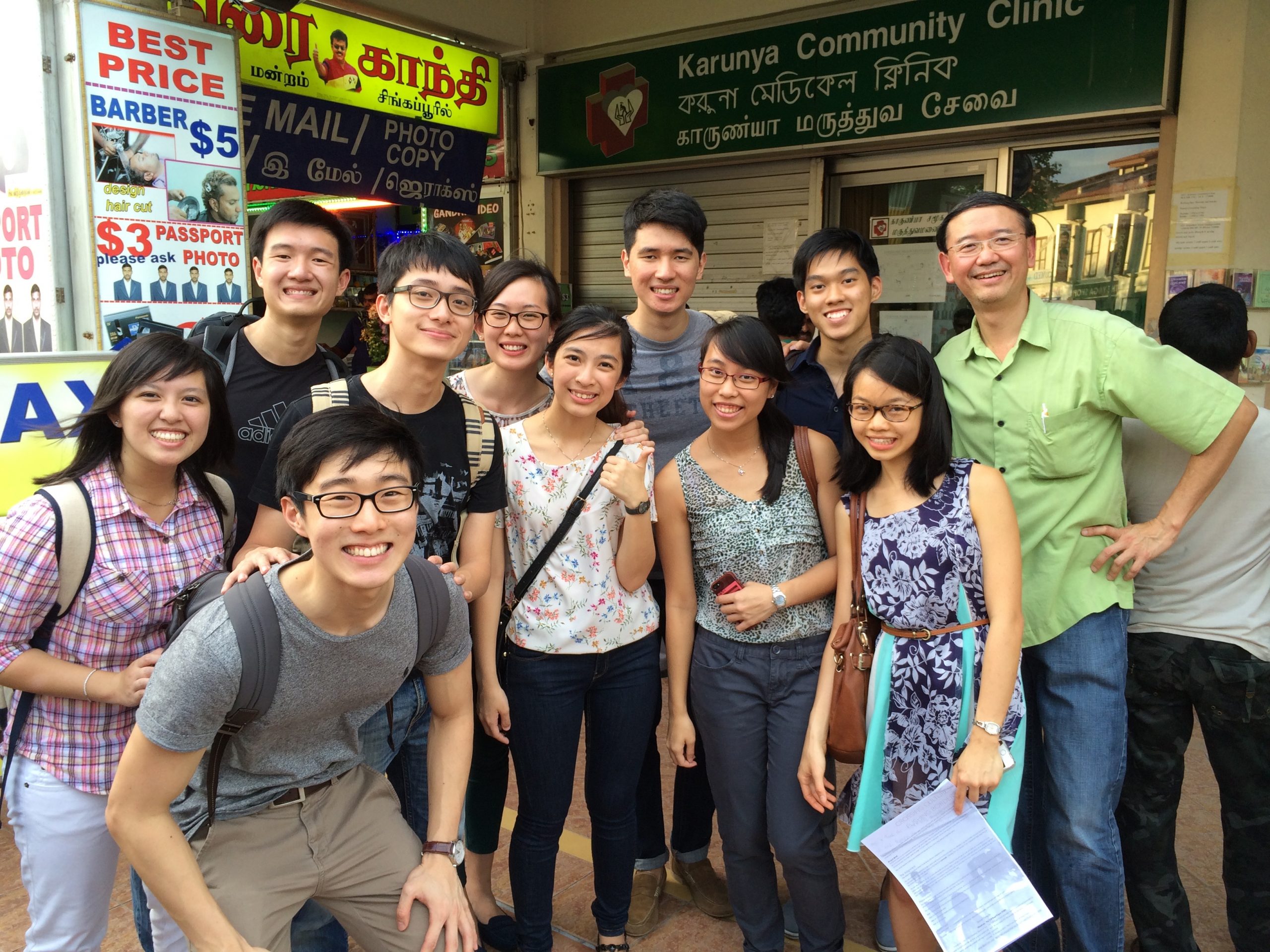
“Be open, be exploring, be courageous to walk into the unknown,” Dr Goh urges the next generation. He is seen here with volunteers at the Karunya free clinic in Little India.
For the young person who is very energetic, develop a rhythm of rest and reflection. Be a reflective practitioner.
Keeping a strong spiritual core is key: The being is more than just the doing.
40 God stories
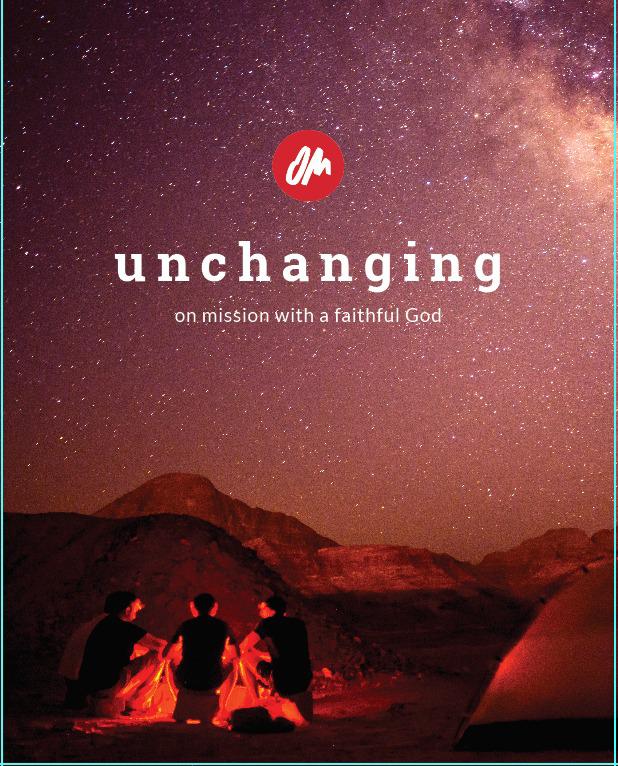
To commemorate their 40th year, OM Singapore has published a book, Unchanging: On Mission With a Faithful God, capturing 40 God-stories of Singaporeans, including Dr Goh Wei Leong, who love God and His mission in many parts of the world.
“The quintessence of OM rests on the premise that God can use anyone, anytime, anywhere, whenever one hungers for Him. It is about giving God a chance to work in and through us,” said Rev Keith Lai, President of National Council of Churches of Singapore (NCCS), who served on board OM’s Logos ship.
“The 40 curated stories in this book testify to this truth. What a motley bunch of most unlikely individuals. What diverse and interesting backgrounds. But all with an underlying common thread – a touch of God’s grace stirring in their hearts to leave home and venture into the fathomless unknown.”
To purchase the book for yourself and your friends, click here.
MORE ON GOD’S FAITHFULNESS IN MISSIONS:
“Singaporeans need to learn to live with mess!”: 2017 Singaporean of the Year Dr Goh Wei Leong
We are an independent, non-profit organisation that relies on the generosity of our readers, such as yourself, to continue serving the kingdom. Every dollar donated goes directly back into our editorial coverage.
Would you consider partnering with us in our kingdom work by supporting us financially, either as a one-off donation, or a recurring pledge?
Support Salt&Light
